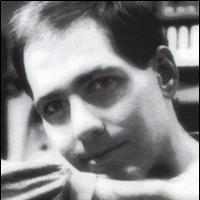
Robert Rich
by Sean CooperAlthough his music is often consigned to the new age bins of record stores and the bulk of his work has been released on labels more closely associated with that classification, Robert Richs solo and collaborative recordings have proven extremely influential on a range of new school ambient and experimental artists. Although barely into his 30s, Richs association with earlier space-music pioneers such as Steve Roach, Kevin Braheny, and Michael Stearns also makes him one of the few of that generation to have interfaced creatively with the new wave of experimental electronic composers.A California native, Rich began experimenting with electronics in the late 70s before attending Stanford University, where he completed a degree in psychology. While at Stanford, Richs involvement in the universitys prestigious Center for Computer Research in Music and Acoustics expanded his interest in electronic composition, as well as bringing him in contact with a wide range of non-traditional, non-Western musical ideas. Richs performance of several all-night sleep concerts during this period also helped solidify an aesthetic focus on psychoacoustics, perceptible in early recordings such as Geometry and Trances/Drones.Richs more mature works such as Rainforest and Propagation have sought to combine that interest with more recognizable electro-acoustical elements (Rich plays a wide range of instruments, from synths and effects racks to hand drums and flute), but the influence of digital sound manipulation has also moved increasingly to the fore. Inspired by the more textural works of artists like SPK and Throbbing Gristle, Richs interest in the edgier side of electronic composition has also earned him a reputation among fans of gothic, industrial, and dark ambient, made most obvious by his collaboration in 1995 with Brian Williams of Lustmord. In addition to his more ambient-leaning works, Rich also plays in the experimental pop band Amoeba. He is also a scholar of Just Intonation, writing regularly on the topic and co-authoring the software program JICalc. He released Inner Landscapes in 1999, and Humidity: Three Concerts a year later.
